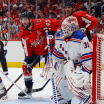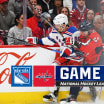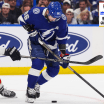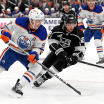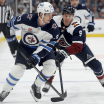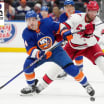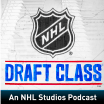Deputy Commissioner Daly: "Obviously there was a lot of debate with respect to the possibility of moving the draft up and staging the draft before the resumption of play. We certainly felt like we had an acceptable window to accomplish that, if that was something we could do, and certainly there were reasons why we thought that might be a good idea. But as with most issues, we brought it to the clubs and there was not a strong consensus one way or the other, quite frankly, on whether we should do it. And, certainly, the people who were opposed to it felt strongly about being opposed to it. Some of the factors, probably the most significant one we gave the most weight to, was the lack of the ability to use the draft as an opportunity, as a jumping-off place for forming your next year's roster, resetting in the offseason like many clubs do, the inability to have a trade associated with active players in and around the draft. Those were voiced I thought very articulately and certainly had a strong factor in what we ultimately decided to do."


